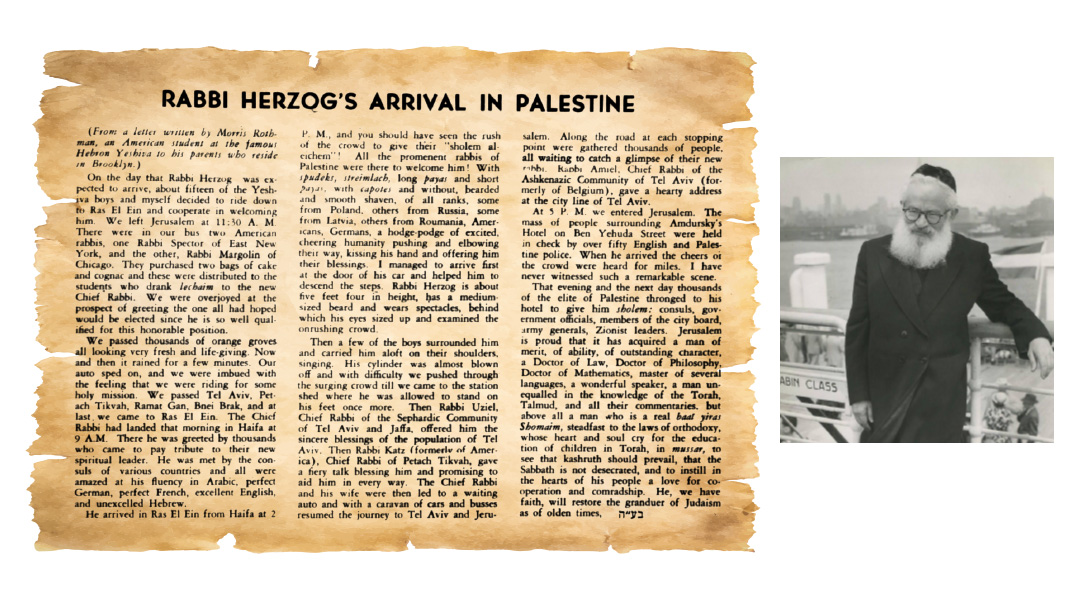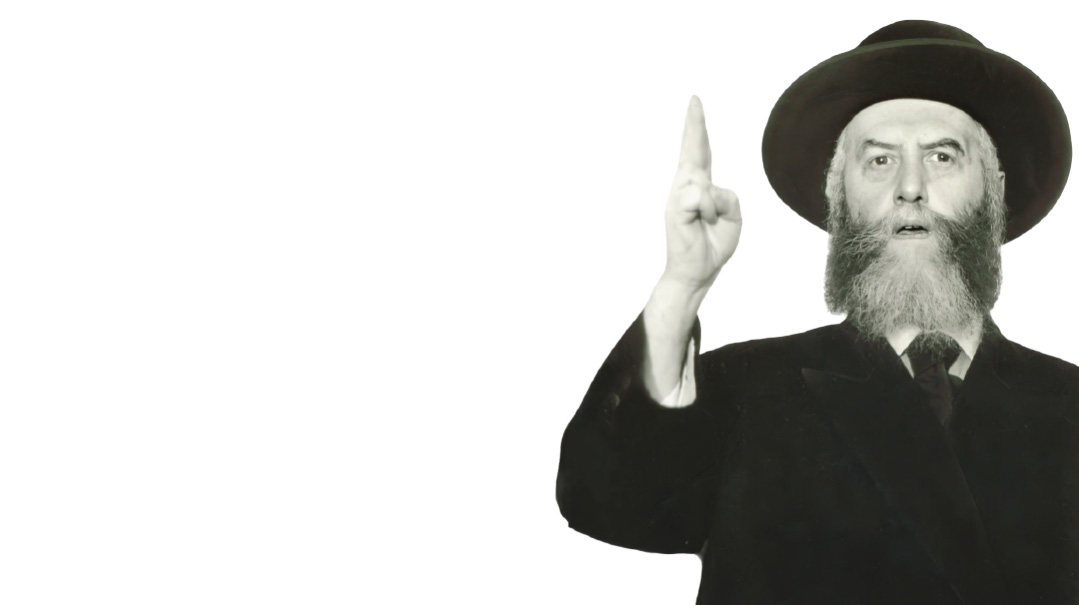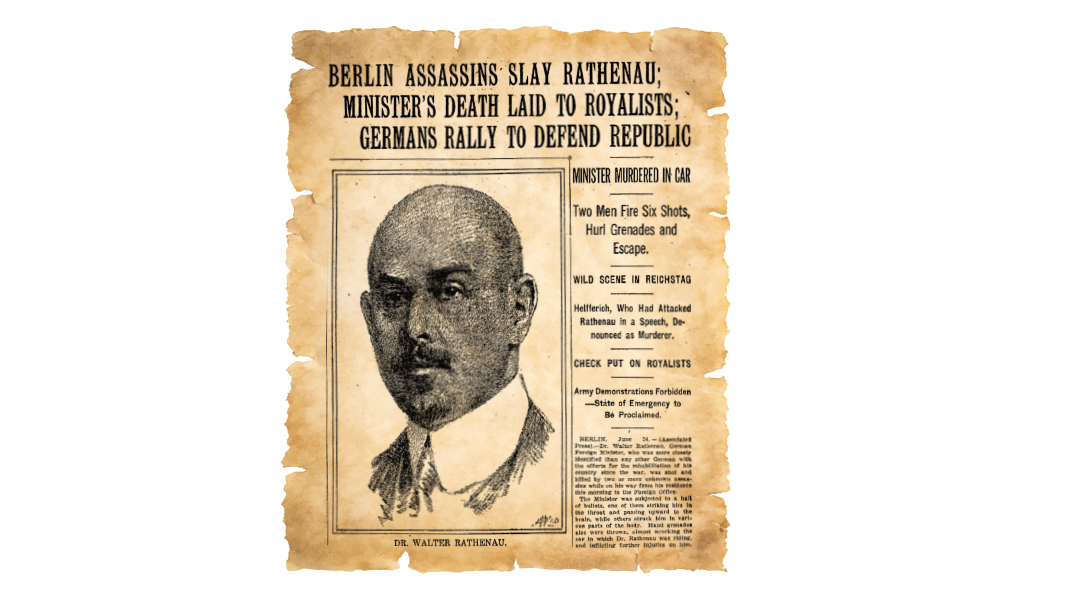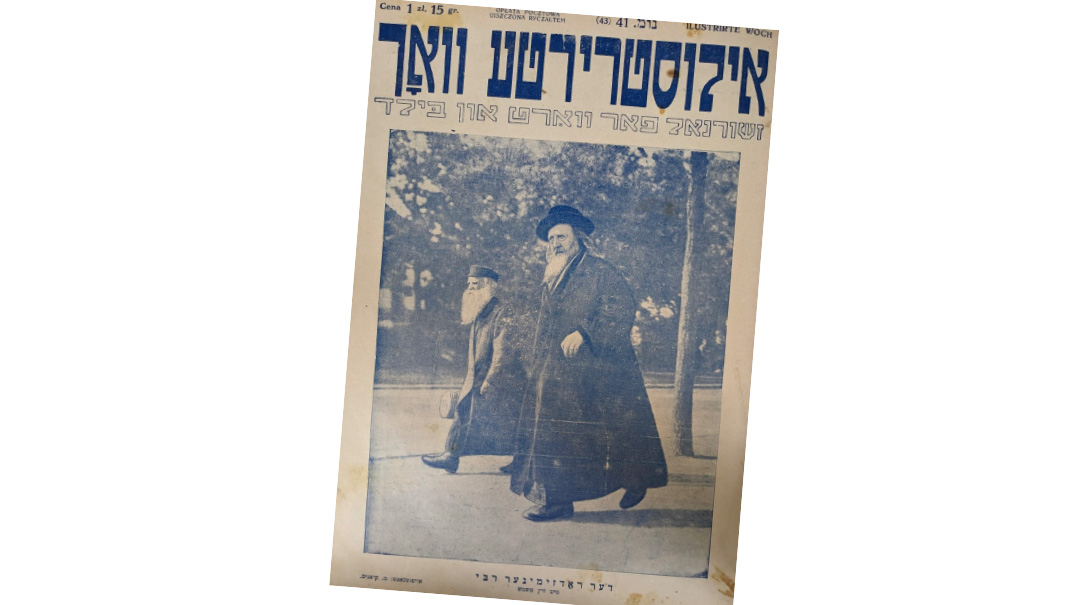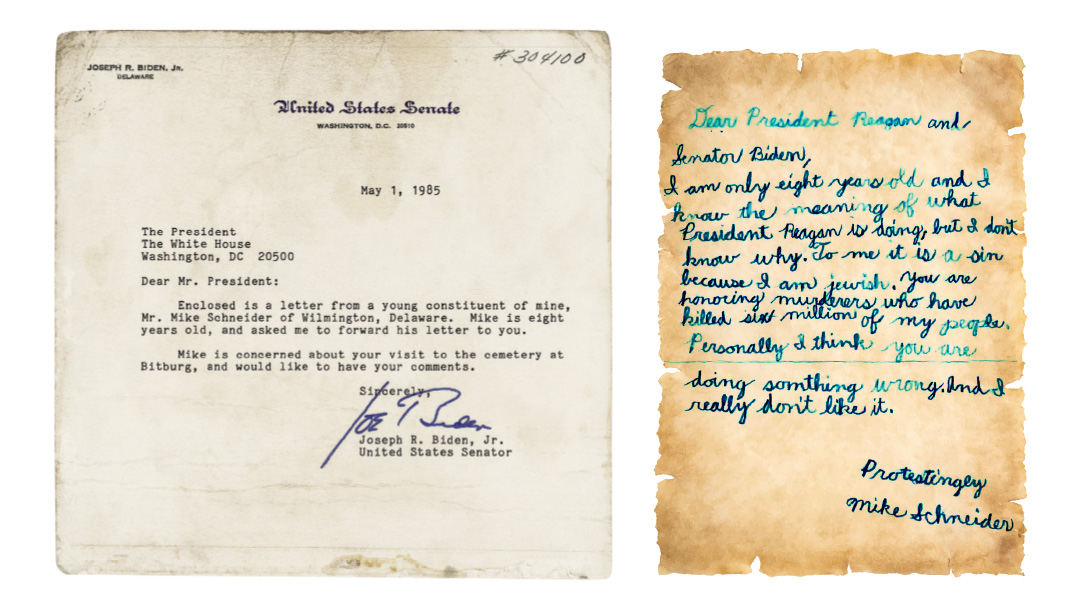Voices from a Vanished World
| April 30, 2024This collection of letters from fundraisers and applicants provides insight into the inner workings of Yeshivas Chachmei Lublin
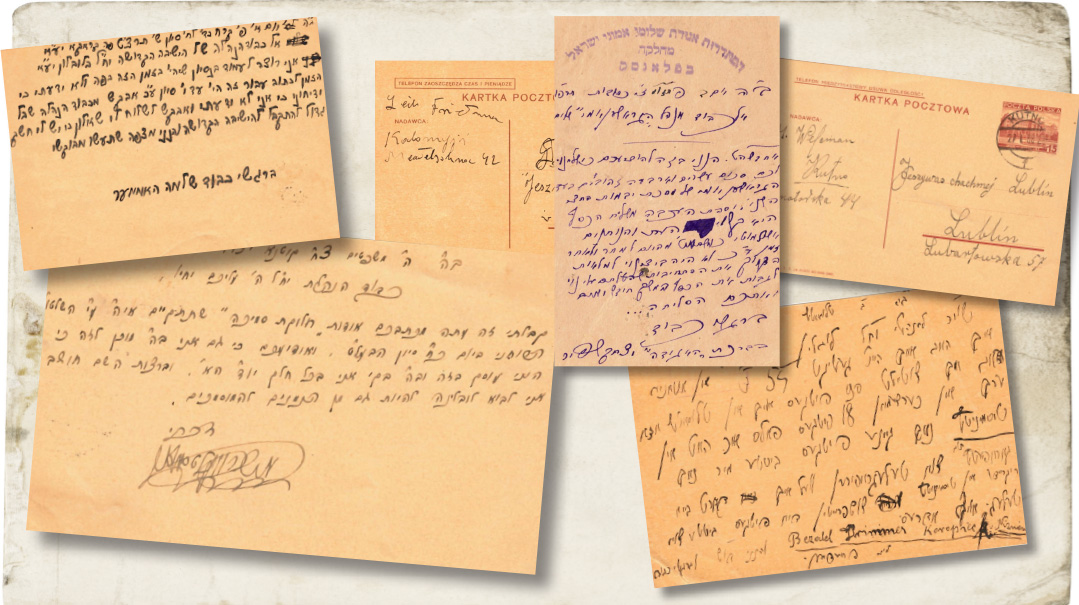
Sunday, Parshas Korach, 24 Sivan 1939, Krakow
To the esteemed hanhalah of the holy yeshivah Yachel [Yeshivas Chachmei Lublin] in Lublin,
I would like to pass the entrance exam for the upcoming zeman, and I wasn’t aware that the application deadline was 10 Sivan. I therefore am requesting that the honorable hanhalah not turn me away and not reject me from the yeshivah, because I wasn’t aware of the deadline. Please send me the application questionnaire, because I have a great desire to be accepted to the holy yeshivah, and I really hope that you fulfill my request.
With respect,
Shlomo Hammer
Whether Shlomo’s postcard was answered or not is unknown. It’s also not known whether Shlomo was to be found, the following Elul zeman, in the beis medrash of Yeshivas Chachmei Lublin’s magnificent edifice at 57 Lubartowska Street in Lublin, Poland.
But it is almost certain that he shared the fate of 90 percent of Polish Jewry and of the yeshivah he so desired to join. Less than three months after Shlomo wrote his letter to the yeshivah hanhalah, and just two weeks into the upcoming Elul zeman, the Nazis invaded Poland, the yeshivah dispersed, and over the subsequent years of the Holocaust, the Jews of Krakow, Lublin, and the rest of the country were massacred by the Nazis, leaving few survivors.
Yet through a fascinating course of events, his postcard, along with an entire cache of Yeshivas Chachmei Lublin correspondence, did survive. This collection of letters from fundraisers and applicants provides insight into the inner workings of Yeshivas Chachmei Lublin. It even contains personal letters to Chachmei Lublin’s esteemed founder, Rav Meir Shapiro, sent when he was still rabbi of Piotrkow, Poland, prior to his ascension to the Lublin rabbinate with the yeshivah’s establishment in 1930. These postcards, written in Hebrew or Yiddish, provide mundane details of daily Jewish life in Poland in the context of its greatest yeshivah, and open a rare window onto a lost world.
Piotr Nazaruk is a Polish scholar who has dedicated his life to restoring the Torah library of Yeshivas Chachmei Lublin, which was largely lost after the Holocaust. (See “The Legend of the Lost Library of Lublin” in Issue 939.) His research has uncovered a wide range of documentation on the yeshivah in general. He recently recovered this collection of postcards, sent to the yeshivah during the 1930s, under a unique set of circumstances. In our correspondence with Piotr, he shared the background to this discovery.
The story goes back to the early 20th century when a future German soldier was a boy... His mother worked in a textile factory and he was allowed to look into the trash bin, which held business correspondence from all around the world. He developed a fascination with postage stamps, and already as a teenager he had a huge collection of stamps from all the continents.
After he was drafted into the Wehrmacht during World War II, he was stationed in Lublin until 1941. When he was near the yeshivah, he saw a pile of trash. Germans were looting the building of valuables and throwing away things that had no value. Among them was the official correspondence of the yeshivah. He took nearly 40 of these postcards, not because he wanted Jewish loot, but because he noticed postage stamps on the cards.
He passed away in the early 1980s and when his granddaughter, Karla McCabe, was 18, her mother (the daughter of the former soldier) gave her some of his things. Karla… immediately recognized the Hebrew on the postcards. After the fall of the Berlin Wall, she tried getting rid of these postcards, because she felt ashamed of having Nazi loot in her home.…
A few months ago, she saw my video about the Yeshivah Library project and decided to try again, this time successfully. Yesterday we had a wonderful event in the yeshivah with the Jewish community and other officials. The postcards will be held in the State Archives in Lublin because they have the best means of securing such objects, storing them in a safe environment, and also making them publicly accessible. In the yeshivah we will put high-resolution copies of the originals.
Many of the letters are from local fundraisers across Poland and other countries. Others are requests for individual bochurim to be accepted into the prestigious institution. One of the more interesting ones was a 1934 postcard (kartka pocztowa) addressed to D. Eiger, 40 Szeroka Street, Lublin, and it was dispatched by Rabin S.Z. Weltfrajd from Tomaszow Mazowiecki, Poland.
Sunday, Parshas Tazria-Metzora, Tomaszow
To my dear and esteemed brother-in-law, who’s rooted in holy lineage, Rav Dovid’l shlita,
And now my request to you, my dear brother-in-law, is that my brother-in-law from Czestochowa has a 17-year-old son who is doing exceedingly well in his Torah studies. He has studied in the Keser Torah [Radomsk] yeshivos of Lodz and [the main one in] Sosnowiec. He has maximized what those yeshivos have to offer and is ready to move on to grow in his studies.
Last week in Sosnowiec, he stood for an entrance exam to be accepted into Yeshivas Chachmei Lublin, and baruch Hashem, he passed the test, so he can now travel to Lublin to continue his studies.…
So I am now asking you to please speak to your esteemed older brother, Rav Shlomo shlita, the chairman of the yeshivah, to please send a formal invitation of acceptance to the yeshivah, and have it dispatched expeditiously this week. I’m sure you will comply with my request, and write it accordingly. My nephew’s name is Alter Meir Emmanuel ben Rav Nosson David of Czestochowa.…
Your brother-in-law who loves you, wishes you all the best, and is awaiting your response,
Shlomo Zalman Weltfrajd
With a bit of detective work, we were able to identify some of the individuals mentioned and their ultimate fates.
Following the untimely passing of the yeshivah’s legendary founder, Rav Meir Shapiro, in 1933, the yeshivah was headed by a shilton ruchani. For a time, its head was Rav Shlomo Eiger, a grandson of the chassidic tzaddik Rav Leibel Eiger of Lublin and a descendant of Rav Akiva Eiger.
Rav Shlomo Eiger served as rebbi in the yeshivah until his passing in 1940 in Warsaw, where he had fled when the war broke out. He also served as a rebbe of the Lublin chassidim, succeeding his father, Rav Avraham, and his grandfather before him. Rav Shlomo’s brother, Rav David, didn’t serve in any rabbinical or chassidic leadership capacity, but lived down the block from the yeshivah in Lublin.
The Przedborz chassidic dynasty had its origins with Rav Yeshaya Weltfrajd of Przedborz, who was a close student of the Chozeh of Lublin. Upon his passing, he was succeeded by his son Rav Emmanuel, whose name was chosen by the Chozeh as a segulah for longevity. He in turn was succeeded by his son Rav Avraham Moshe of Rozprza, who was a student of the Divrei Chaim of Sanz. It was his son, Rav Shlomo Zalman, who penned the postcard on behalf of his nephew.
Rav Shlomo Zalman served as rebbe in Tomaszow, but moved to Lodz in 1935, where he emerged as a central chassidic figure and a leader of the religious community. He was renowned for his intense hasmadah and impassioned davening. When the war broke out, he initially remained in the Lodz Ghetto, where he allegedly never missed a day of going to the mikveh, despite the risks involved. He was later smuggled to the Warsaw Ghetto, and he and his entire family were murdered by the Nazis.
The remainder of this small collection undoubtedly contains additional vignettes and tidbits from the lost world of Polish Jewry, and no one knows how much else was discarded in the Nazis’ attempt to wipe out not only their physical existence but also their memory.
May this small tribute serve as a memorial for these kedoshim, Hashem yikom damam.
Voices from the Archive
Please Give Me Semichah
Thursday, Parshas Mishpatim 1938, Kutno, Poland
To the honorable hanhalah of Yeshivas Chachmei Lublin, may you live long years,
I recently received your letter regarding the upcoming semichah distribution ceremony, which is to take place this upcoming 28 Sivan. I wish to inform you that I’m also baruch Hashem prepared for this semichah examination, because I’m very engaged in studying for it, and by now I’m baruch Hashem an expert in all of Yoreh Deiah, chelek 1. So it is my plan, G-d willing, to come to Lublin in order to participate and be among those to receive semichah.
From Plonsk to Piotrkow
The collection contains an interesting letter, sent quite some time before Yeshivas Chachmei Lublin was opened, from an organization called Histadrus Agudas Shlomei Emunei Yisrael of Plonsk, to Rav Meir Shapiro, then serving as rabbi of Piotrkow, Poland.
Wednesday, Parshas Tazria-Metzora, 1926
We wanted to inform you that we sent you 24 zehuvim [zloty] for the [illegible] second half of Maseches Yevamos.… We apologize for sending the money so late, but the circumstances were beyond our control.…
This article is based on the research of Piotr Nazaruk, who has initiated a project of identifying and cataloging books from the YCL library and building an archive of materials related to the yeshivah. The authors would like to thank Mr. Nazaruk for sharing this new find with us, and for the incredible work he’s doing to preserve the memory of Yeshivas Chachmei Lublin.
Anyone who has information regarding the whereabouts of books or material from the yeshivah, or who has a book with the YCL stamp and is willing to share a photograph, should please contact the authors or Mr. Nazaruk at piotr.nazaruk@tnn.lublin.pl.
(Originally featured in Mishpacha, Issue 1009)
Oops! We could not locate your form.

